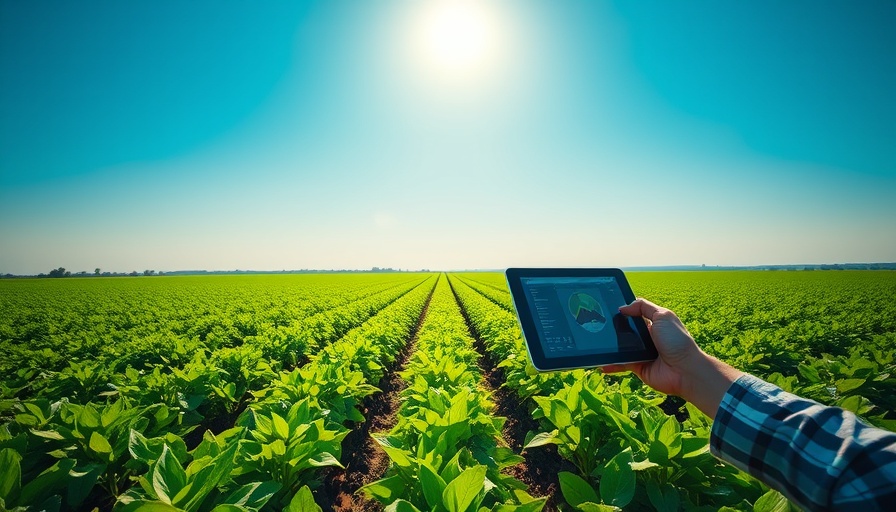
Transforming Cities into Green Havens
As urban environments expand at an unprecedented pace, cities are faced with pressing challenges such as food scarcity, water management, and climate change. Traditional farming methods, often distant from urban populations, struggle to meet the growing demand for locally sourced food. Enter urban farming—an innovative solution that leverages technology to transform concrete jungles into lush, productive spaces.
Data-Driven Agriculture: The Future is Now
One of the most exciting advancements in urban agriculture is the integration of data-driven technologies, particularly in systems like Freight Farms. Their unique approach uses shipping containers outfitted with hydroponic systems to produce fresh, year-round crops in urban settings. These vertical farms are designed to optimize space and resources, allowing urban dwellers to enjoy fresh produce regardless of external conditions.
The Role of Technology in Sustainable Farming
With the increasing necessity for sustainable food production, technologies like Freight Farms are leading the charge by utilizing a minimal amount of water compared to conventional farming. Only five gallons of water are needed daily to sustain a harvest of 13,000 plants. This efficient use of resources demonstrates how technology can help reduce water wastage while providing nutritious food for communities. Remote monitoring through the Farmhand app enables urban farmers to oversee their crops meticulously, ensuring optimal growing conditions from anywhere.
Urban Gardening: More than Just Growing Food
Beyond food security, urban gardening fosters community connections. Initiatives like community gardens not only beautify neighborhoods but empower individuals to cultivate relationships through shared gardening endeavors. These projects become more than just productive plots; they are a means for education, collaboration, and urban renewal.
Rooftop Farming: Maximizing Urban Spaces
Rooftop farms are gaining popularity in bustling cities, enabling the transformation of otherwise underutilized spaces into productive ecosystems. Utilizing the vertical dimension of buildings, these farms contribute to local food systems, reduce urban heat, and improve air quality. Many entrepreneurs are capitalizing on the trend by incorporating green roofs into their buildings, providing fresh produce for restaurants and local markets.
Transforming Mindsets Towards Sustainability
The phenomenon of urban agriculture encourages a cultural shift towards sustainability. As individuals engage in gardening and witness the fruits of their labor, they foster a deeper appreciation for where their food comes from. It instills a sense of responsibility and connection to the environment—key tenets of sustainable living.
Looking Ahead: The Future of Urban Farming
With the growing emphasis on sustainability and self-sufficiency, the future of urban farming seems promising. As technologies advance and awareness increases, we may witness a mass movement toward utilizing urban landscapes for local food production, driven by community involvement and innovative practices. Through continued education about sustainable agriculture, we stand to alleviate food insecurity in our cities while simultaneously enhancing the quality of life.
Urban farming technology is not just an interest; it’s essential for managing future demands. Connect with local community gardens or explore options to build your own hydroponic unit to embrace this vibrant lifestyle. Start your journey in urban farming today and help pave the way for a greener, more sustainable future.
 Add Row
Add Row  Add
Add 




 Add Row
Add Row  Add
Add 

Write A Comment